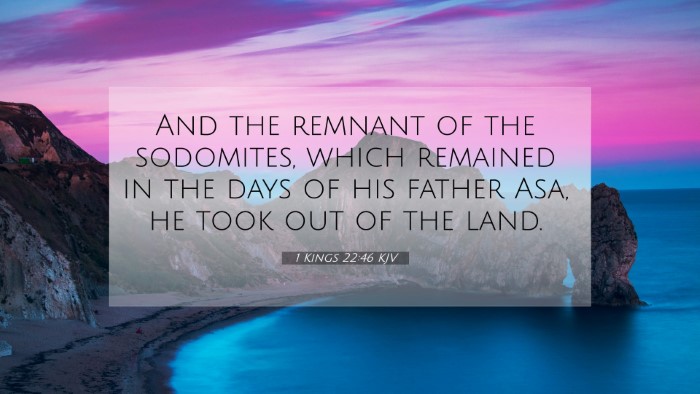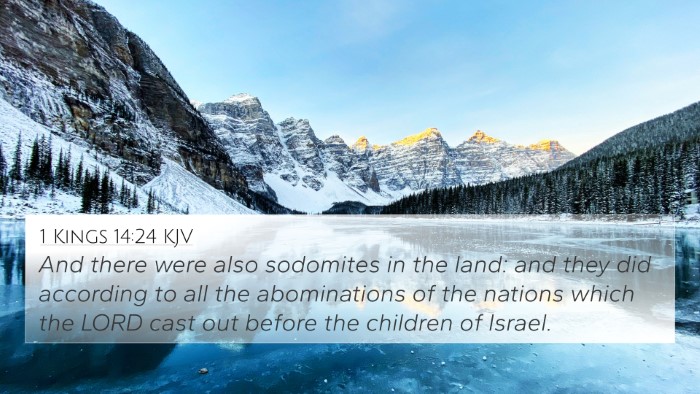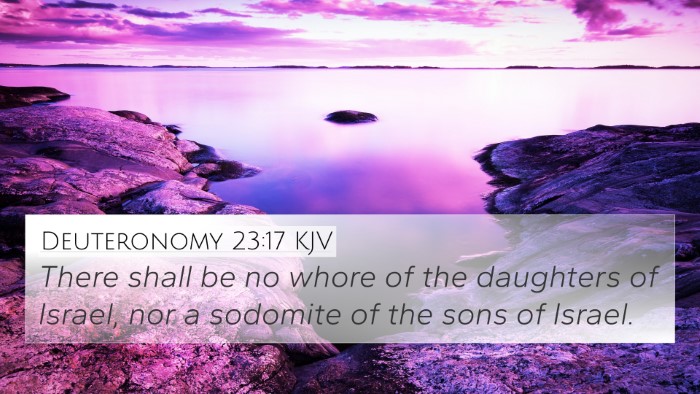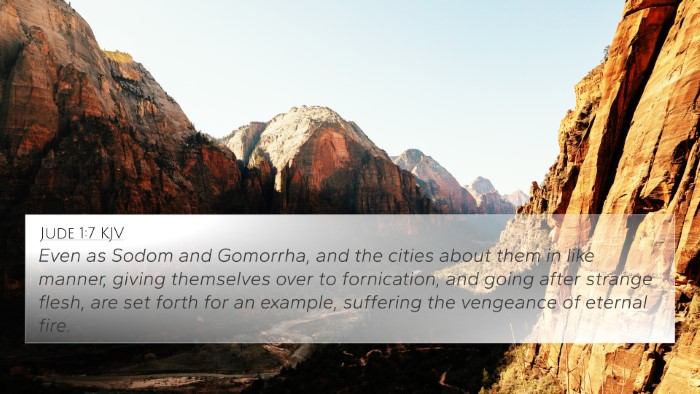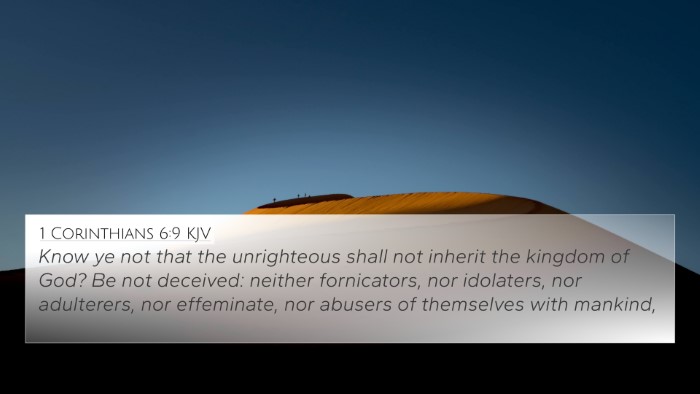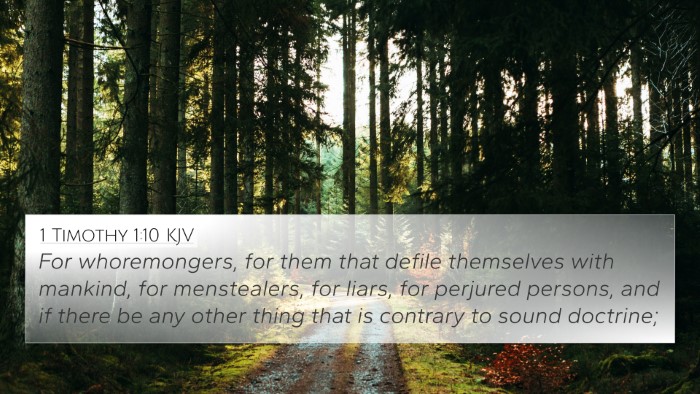Understanding 1 Kings 22:46
Bible Verse: 1 Kings 22:46 - "And the remnant of the sodomites, which remained in the days of his father, he took out of the land."
This verse serves as a historical note regarding the reforms of King Jehoshaphat of Judah. In this context, the term "sodomites" refers to male shrine prostitutes, a practice associated with the pagan worship that was prevalent during that period.
Insights from Public Domain Commentaries
Below are insights drawn from the collective works of Matthew Henry, Albert Barnes, and Adam Clarke:
- Historical Context: Matthew Henry emphasizes that Jehoshaphat's reforms were aimed at purging the land of immoral practices and idolatry that had taken root. By removing the sodomites, he sought to restore the moral integrity of Judah.
- Spiritual Significance: Albert Barnes notes that this act symbolizes a broader spiritual cleansing. It illustrates the need for God's people to distance themselves from sinful practices and return to righteousness.
- Symbolism of Sin: Adam Clarke reflects on the figurative implications of "sodomites" as representing all forms of sexual immorality. This indicates God's displeasure with such sins, serving as a call to holiness.
- Judah’s Spiritual Leadership: All the commentators agree that Jehoshaphat's actions demonstrate the responsibilities of leaders in guiding their people towards Godly living and away from societal corruption.
- Connection to Other Scriptures: The removal of the sodomites links to various Biblical themes about purity, idolatry, and God’s judgment, making it necessary to explore cross-references to fully grasp the implications.
Cross-References Related to 1 Kings 22:46
To further understand 1 Kings 22:46, here are important cross-references that highlight similar themes:
- 2 Kings 23:7: "And he broke down the houses of the sodomites, that were by the house of the Lord, where the women wove hangings for the grove." – Demonstrates the ongoing struggle against idolatrous practices.
- Deuteronomy 23:17-18: "There shall be no whore of the daughters of Israel, nor a sodomite of the sons of Israel." – Sets the law prohibiting these practices.
- Leviticus 18:22: "Thou shalt not lie with mankind, as with womankind: it is abomination." – Further emphasizes God's stance on sexual immorality.
- Romans 1:26-27: "For this cause God gave them up unto vile affections: for even their women did change the natural use into that which is against nature..." – Discusses the consequences of immorality.
- 1 Corinthians 6:9-10: "Know ye not that the unrighteous shall not inherit the kingdom of God? Be not deceived: neither fornicators, nor idolaters, nor adulterers, nor effeminate, nor abusers of themselves with mankind..." – Lists those practices that are opposed to God's kingdom.
- 2 Chronicles 17:6: "And his heart was lifted up in the ways of the Lord: moreover he took away the high places and groves out of Judah." – Illustrates Jehoshaphat’s commitment to spiritual reform.
- Hebrews 12:1: "Wherefore seeing we also are compassed about with so great a cloud of witnesses, let us lay aside every weight, and the sin which doth so easily beset us..." – Encourages believers to shed sinful practices.
- James 4:4: "Ye adulterers and adulteresses, know ye not that the friendship of the world is enmity with God?" – Advises believers to avoid worldly temptations.
- 1 Peter 1:16: "Because it is written, Be ye holy; for I am holy." – A call to live a life separated unto God.
Thematic Bible Verse Connections
The theme of removing immoral practices is prevalent throughout Scripture:
- Purity and Holiness: Verses that call for believers to live a life in accordance with God's laws.
- God’s Judgment: Several passages illustrate the consequences of sin and idolatry.
- Leadership in Spiritual Matters: The responsibility placed upon leaders, both civic and spiritual, to guide their communities towards God.
- The Call for Reform: Instances where God’s people are called back from sin to a life of righteousness.
Tools for Bible Cross-Referencing
Utilizing cross-references effectively can enhance your understanding:
- Bible Concordance: A tool that lists words, phrases, and their occurrences throughout the Bible.
- Bible Cross-Reference Guide: Provides lists of verses that relate to one another.
- Cross-reference Bible Study: Methods for studying scripture through the lens of connected verses.
- Bible Reference Resources: Includes various materials that support deeper scriptural study.
Conclusion
1 Kings 22:46 offers a crucial insight into the heart of righteous governance and the importance of eschewing immoral practices within the context of worship and community living. This verse serves as a call for all believers to reflect on the necessity of maintaining purity, rooted deeply in scriptural mandates, and to seek reform wherever needed within their lives. Through thoughtful cross-referencing, one can draw connections with other scriptures to form a comprehensive understanding of God's will and commands.


